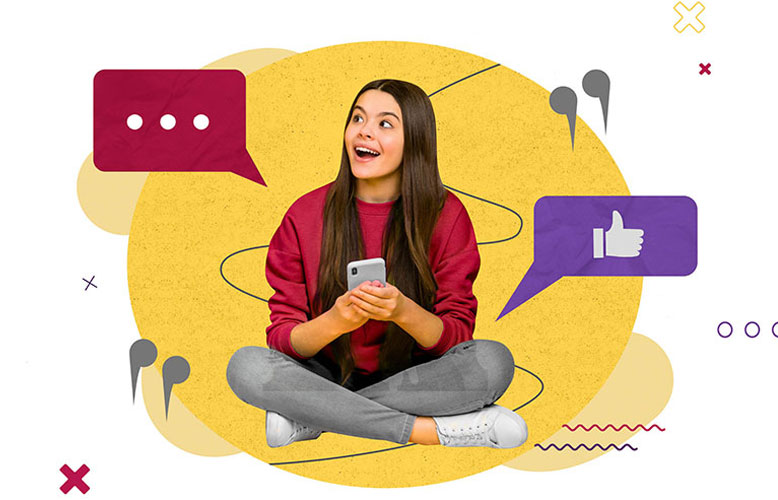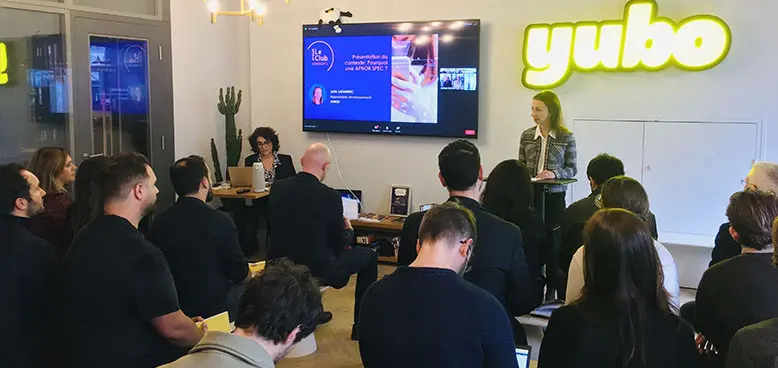Protecting minors online: yes, it’s possible

At what age do children start using social media? At the age of 13, which is the theoretical age limit for certain platforms? At the age of 15, as called for by the new French regulations on digital majority? Of course not. According to CNIL (Commission nationale de l’informatique et des libertés – National commission for personal data protection and privacy) data, they sign up to a platform for the first time at the age of eight and a half.
Faced with the very real risks they run, a team led by AFNOR, at the initiative of the Yubo platform, has published a guide listing best practices to protect them. This teamwork is important, because this is the ultimate subject that suffers from the dilution of responsibility. Who should protect children online? Parents? Governments? Platforms? Young people themselves, called upon to take responsibility? Published on 23 November 2023 and available free of charge here in English version, AFNOR Spec 2305 provides some answers. Sharone Franco, Legal and Public Affairs Director at Yubo, gives a video overview here (in French). The guide, which will soon be translated into English, is divided into three main chapters:
- Verification of accounts
- Detection, moderation and reporting
- Transparency and awareness-raising
It ends with a complete reminder of the legal framework. As this framework is constantly changing, this section of the document will be updated within eighteen months. The guide identifies a first pitfall: we will not be able to protect minors if we cannot identify them. But this is not the only challenge facing platforms: they also need to be able to moderate usage, report any abuses as quickly as possible, raise awareness throughout their ecosystems, and comply with their country’s regulatory framework. A complex topic.
Minors and social media: cyber-bullying kills
The challenge is therefore huge and is also rooted in a particularly heavy social context, as reminded by Samuel Comblez, Director of Operations at E-Enfance, a non-profit organization, in his introduction to a meeting organized on 23 November 2023 in Paris to present the document: “Today, cyber-bullying kills. You have to say it like that. 20% of families are affected by this new risk. And as a psychologist, I can tell you that minors are not doing well. Of course, it’s not all the fault of social media, but there has been a 40% rise in the number of suicide attempts since the end of the Covid-19 health crisis, particularly among girls”.
Samuel Comblez gives another figure: “At the age of 5 years and 10 months, children start going online with their parents. A year later, they’re off on their own, without asking anyone’s permission”. The psychologist was delighted that the group led by AFNOR, of which he was a member, was able to produce this first guide in the space of eight months (and “only 19 years after the birth of Facebook“). Drawing a parallel with the automotive industry, he recalled that the driving licence, and then the highway code, had appeared more than a hundred years after the first cars. Not to mention the rear seat belts! “We managed to write 103 pages with very practical information, with the AFNOR group as our delivery team“, he summed up.
AFNOR Spec 2305: a representative round table
This achievement is intended to benefit all platform publishers, not just those who have been involved in the project (Yubo and Meta). “This document will enable us all to secure our businesses. It was important to have the right round table“, recalled Sharone Franco, for Yubo. “We worked hand-in-hand with platforms, security solution providers like Bodyguard, institutions and associations. We’ve also taken into account the very rapid advances in technology, particularly in the field of artificial intelligence. This is the document I wish I’d had in my hands when we launched Yubo”. CNIL and ARCOM were among the players mobilized to provide support.
This document comes at just the right time. On 20 November 2023, the US Senate Judiciary Committee called three platform executives to a hearing on the exploitation of minors online. “Big Tech has failed to self-regulate, to the detriment of our children“, launched the senator leading this slingshot. On our side of the Atlantic, the European Executive announced in early November 2023 two new requests for information from YouTube and TikTok, under the Digital Services Regulation (DSA). Both platforms have to answer for the measures they have taken to protect minors, particularly with regard to their physical and mental health.
Contributors
AFNOR – BODYGUARD – DAILYMOTION – E-ENFANCE – META – MYM – POINT DE CONTACT – RESPECT ZONE – SORARE – TRALALERE – YOTI – YUBO
